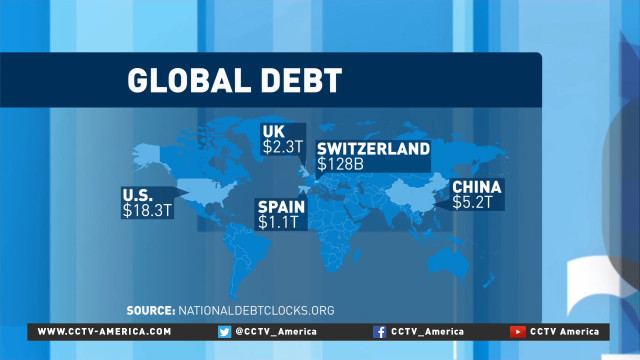Greece’s default on International Monetary Fund (IMF) payments has sent ripples through world financial markets. But nearly all countries carry debt – the international economy runs on debt.
John Metherell reported on this in Washington.

A snapshot of national debt worldwide:
- In 2003, Argentina defaulted on a $3 billion debt to the IMF. Despite dire predictions at the time, the world economy did not collapse, but it did leave Argentina with a precarious economy.
- Puerto Rico is facing similar trouble. Earlier this week, its governor declared the island was unable to service a debt of about $72 billion. In a last minute move, Puerto Rico paid more than $1 billion in obligations on Wednesday, heading off for now a deepening financial crisis.
- The United States has a national debt of more than $18 trillion.
- Although China’s economy continues to expand – at a slower rate recently – the world’s second largest economy carries debts of more than $5 trillion.
- The U.K. owes in excess of $2 trillion; Spain — another Eurozone country that could be in similar trouble to Greece — has debts of more than $1 trillion; Switzerland owes about $120 billion.
- For many nations owing money, their citizens, children and grandchildren can expect to be paying for national debts for years to come.
Economist Patrick Young discusses potential benefits of debt
For more on how the debt affects the world economy, CCTV America’s Asieh Namdar spoke with economist Patrick Young to discuss when debt might be a good thing and how it differs in different nations.

 CGTN America
CGTN America
